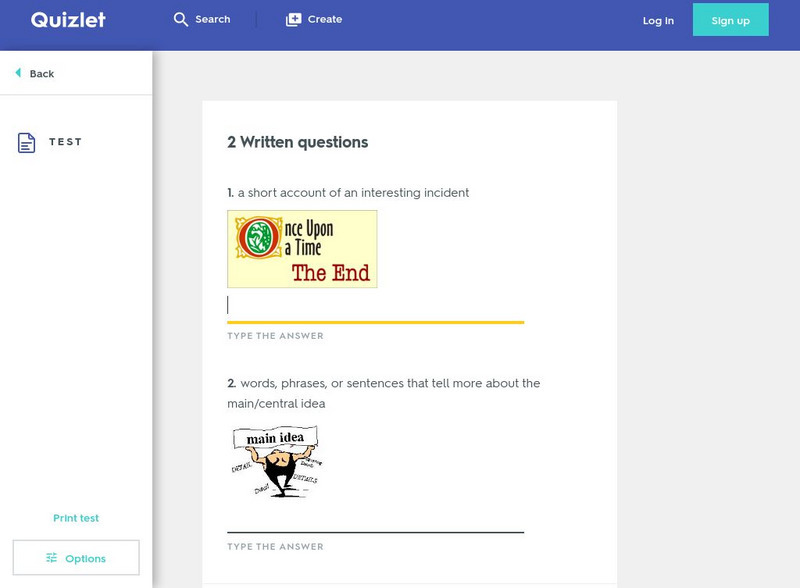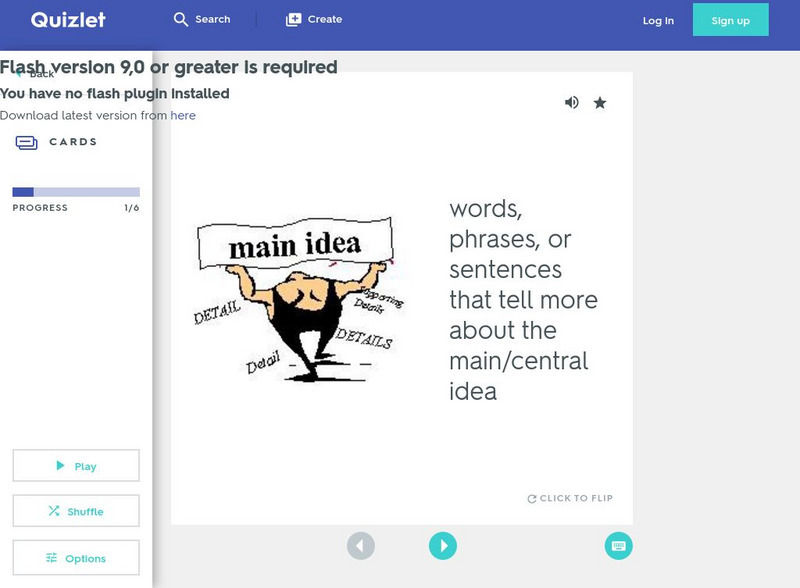Hi, what do you want to do?
Curated OER
Forming an Opinion with Organizational Elements - Cats, Yesterday and Today
In this age of information overload, it is often difficult for young people to know what they think about a topic. The graphic organizer, video, and activities included with this resource show middle schoolers how to use proven facts to...
Curated OER
Fact or Opinion
In this writing worksheet, students write facts and opinions about a given topic. Students use a graphic organizer to organize their information.
Curated OER
Facts and Opinions in a Variety of Genres
Here is a lesson dedicated to helping learners understand the differences between facts and opinions. They examine the first page of several books from the class library to determine if the book is fact or opinion based. A Venn diagram...
Writing Fix
Writing Fix: The Wacky Smear Campaign
Inspired by Barry Lane's book 51 Wacky We-Search Reports, in this cross-curricular lesson learners learn how to summarize properly.
Polk Brothers Foundation Center for Urban Education at DePaul University
De Paul University: Center for Urban Education: I Can Classify Facts and Opinions [Pdf]
A T-Chart is provided for students to use as they classify facts and opinions. Students will explain how to determine facts and opinions after completing the T-Chart.
SMART Technologies
Smart: Fact vs. Opinion
In this activity provided by SMART, students will learn and practice separating fact from opinion.
Quizlet
Quizlet: Types of Details: Test
This interactive quiz features six multiple-choice questions about types of details and their definitions.
Quizlet
Quizlet: Types of Details: Match
In this interactive game, students match the words having to do with types of details to their definitions.
Quizlet
Quizlet: Types of Details: Learn
In this interactive focusing on learning types of details, students type in the word to match the definition given.
Quizlet
Quizlet: Types of Details: Flashcards
This is a set of interactive flashcards defining words that have to do with details in writing: supporting details, facts, opinion, examples, anecdotes, and statistics.









![De Paul University: Center for Urban Education: I Can Classify Facts and Opinions [Pdf] Graphic De Paul University: Center for Urban Education: I Can Classify Facts and Opinions [Pdf] Graphic](https://static.lp.lexp.cloud/images/attachment_defaults/resource/large/FPO-knovation.png)



